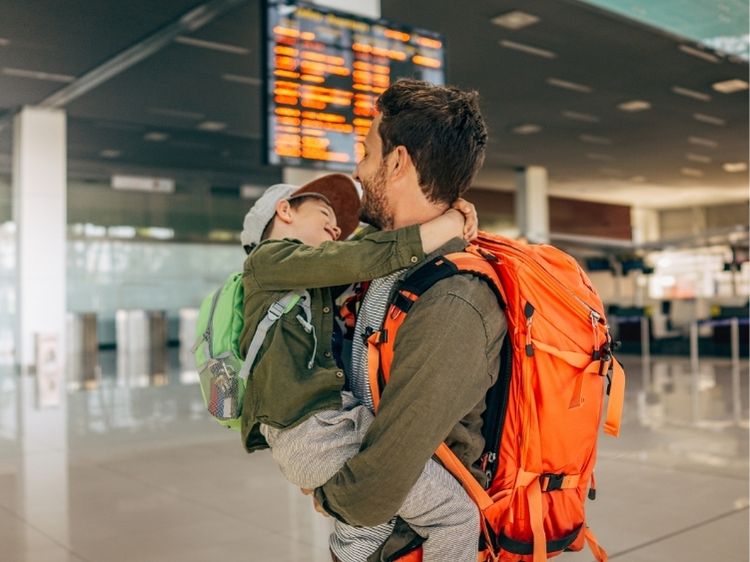Canada is celebrated for its stunning landscapes, vibrant cities, and progressive values. For LGBTQ+ travelers, it often stands out as one of the most inclusive destinations in the world. However, even in a country known for its acceptance, it’s important to understand the nuances of local laws, cultural norms, and any specific travel advisories.
If you’re wondering what the Canada LGBT travel advisory entails and how it impacts your plans, this article dives deep into everything you need to know. Let’s ensure your trip is not just safe but also unforgettable.
1. Why Canada is a Top Destination for LGBTQ+ Travelers
Canada consistently ranks among the most LGBTQ+-friendly countries worldwide. Here’s why:
- Legal Protections:
- Same-sex marriage has been legal since 2005.
- Federal anti-discrimination laws explicitly protect sexual orientation and gender identity.
- Pride Celebrations:
- Iconic events like Toronto Pride, Vancouver Pride Parade, and Montréal Pride draw millions annually.
- Inclusive Policies:
- Gender-neutral passports and inclusive healthcare policies demonstrate Canada’s commitment to LGBTQ+ rights.
With these progressive measures, it’s no wonder LGBTQ+ travelers flock to Canada for vacations, work opportunities, and even permanent residency.
2. Understanding the Canada LGBT Travel Advisory
The term “travel advisory” might sound alarming, but in Canada, it’s more about awareness than caution.
- Local Laws:
While Canada is one of the most progressive countries, laws can vary slightly by province. For example, conversion therapy is banned nationwide, but enforcement varies locally. - Public Attitudes:
Urban areas like Toronto, Vancouver, and Montréal are LGBTQ+ hubs. However, rural and conservative regions may not exhibit the same level of inclusivity. - Health Considerations:
- Canada’s healthcare system is robust, but travelers should still have travel insurance to cover potential needs.
- HIV prevention drugs like PrEP are accessible, but bring documentation if traveling with prescriptions.
3. LGBTQ+ Safe Zones in Canada
Not every corner of the country offers the same level of openness. Here’s a quick guide to LGBTQ+-friendly areas:
- Cities to Visit:
- Toronto: Home to Church-Wellesley Village, a vibrant LGBTQ+ district.
- Vancouver: Features Davie Village, known for its nightlife and community spaces.
- Montréal: Hosts Le Village Gai (The Gay Village), a hotspot for LGBTQ+ culture.
- Places to Be Cautious:
- Some rural areas may not exhibit the same level of acceptance.
- Indigenous communities have varying attitudes based on traditional beliefs.
4. Top Tips for LGBTQ+ Travelers in Canada
Planning your trip? Keep these tips in mind:
- Research Events:
Check out Pride events, film festivals, and LGBTQ+-themed tours during your visit. - Use LGBTQ+-Friendly Apps:
Apps like “HER” or “Grindr” can connect you with local communities. - Stay in Inclusive Accommodations:
- Look for hotels displaying a “Rainbow Registered” accreditation.
- Airbnb hosts often specify LGBTQ+-friendly listings.
- Know Your Rights:
- Familiarize yourself with Canada’s Charter of Rights and Freedoms, which ensures equality for all.
5. Canada’s Approach to LGBTQ+ Travel Safety
Despite being a haven for LGBTQ+ rights, travelers should remain vigilant, as no country is entirely free from discrimination.
- Harassment:
Rare but not impossible, especially in less urbanized areas. - Police Support:
Canadian law enforcement is trained to handle discrimination cases, and you can report incidents without fear of reprisal. - Emergency Contacts:
- Dial 911 for emergencies.
- Many cities have LGBTQ+-specific helplines.
FAQs
- Is it safe for LGBTQ+ couples to show affection in public in Canada?
Yes, especially in cities like Toronto, Vancouver, and Montréal. However, in more conservative or rural areas, discretion might be advisable. - Are there any specific health concerns for LGBTQ+ travelers in Canada?
Not particularly, but ensure you have travel insurance. If you’re on medication like PrEP, bring necessary documents and prescriptions. - What are the best times to visit Canada for LGBTQ+ travelers?
Summer is ideal, as most Pride events take place between June and August. - Can transgender travelers face issues at Canadian airports?
Canada uses gender-neutral identifiers on passports and has inclusive policies for TSA checks, making it one of the most trans-friendly countries for travel. - Are there any regions in Canada LGBTQ+ travelers should avoid?
While Canada is generally safe, some rural areas might not be as openly accepting. Stick to LGBTQ+-friendly cities for the best experience.
Conclusion:
Canada is a shining beacon of inclusivity for LGBTQ+ travelers, offering a mix of cultural richness, legal protections, and vibrant communities. By staying informed about the Canada LGBT travel advisory, you can enjoy a seamless and empowering travel experience.
Remember, preparation is key, so research, pack smart, and immerse yourself in everything Canada has to offer. Happy travels!
Authoritative Links:
- Canada.ca – Official LGBTQ+ Rights Information: https://www.canada.ca
- Rainbow Registered (LGBTQ+-Friendly Businesses): https://rainbowregistered.ca
- Travel Insurance for Canada: https://www.canadiantravelinsurance.com
- Canadian HIV/AIDS Legal Network: https://www.aidslaw.ca
